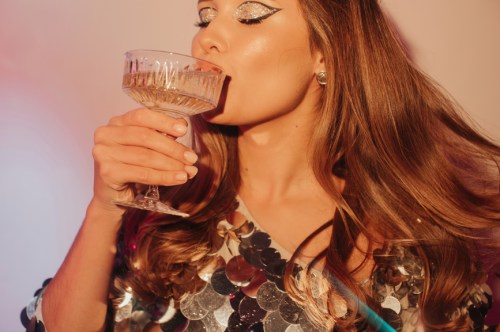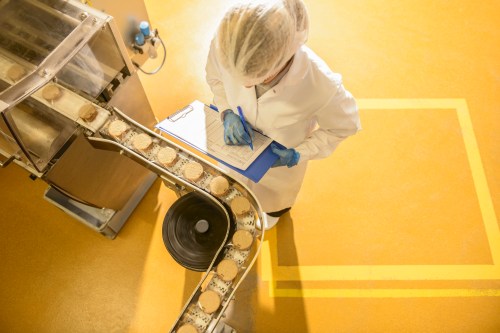Perhaps you pair your dinner with a glass of vino nightly, wait for the weekend to uncork and unwind, or party hardy with shots every so often. In any case, chances are you’re aware that alcoholic bevs, while fun to imbibe, are not necessarily health-supporting tonics. It can mess up your sleep, freak out your gut, and potentially even make you stinky. (Not to mention the hangovers and anxiety over-imbibing can bring.)
Experts in This Article
Tyler Hales, DDS is a cosmetic dentist in Los Angeles and South Orange County, California.
But considering it seems to be “bad” for everything else, have you ever wondered if alcohol is bad for your teeth and gums? We asked a dentist to give us the scoop.
Is alcohol bad for your teeth?
Sadly, yes, alcohol is pretty bad for your teeth (and gums!), says Tyler Hales, DDS, a cosmetic dentist in Los Angeles and South Orange County, California. “For one, alcohol can cause you to have a dry mouth1,” he begins. It’s not just an unpleasant feeling (although it is that, too). Dry mouth means you have less saliva, which typically acts as a buffer against bacteria and helps produce nutrients for healthy teeth. Less saliva transforms your mouth into a more acidic environment, which can allow bacteria to proliferate and lead to a host of issues like tooth decay and cavities.
Alcohol intake has a negative and proportional effect on everything from plaque buildup, gum bleeding, the size of pockets between gums and teeth (which can harbor bacteria and cause tissue and bone damage), and the presence/severity of periodontitis.
Excessive consumption of alcohol over time is also bad for your gums, too. According to a 2015 study in the Journal of Periodontology, alcohol intake has a negative and proportional effect2 on everything from plaque buildup, gum bleeding, the size of pockets between gums and teeth (which can harbor bacteria and cause tissue and bone damage), and the presence/severity of periodontitis (a gum disease that inflames your tissues). Basically, the more you drink/more often you drink, the more likely you are to have serious tooth and gum problems.
In some cases, drinking can have very serious consequences on your oral health. Per the National Cancer Institute, alcohol intake also heightens the risk of oral cavity, pharynx (throat), and larynx (voice box) cancers, with the most pronounced odds for heavy drinkers.
“Most of the effects of alcohol are long-term and [may] depend on the type of alcohol,” Dr. Hales continues. For instance, if you prefer sweet cocktails or other sugary adult bevs, you further increase the risk of oral health issues. (Excess sugar consumption is also associated with cavities.) Red wine and other dark alcohols can lead to staining and discoloration, which may compound over time. In more severe cases, “stronger alcohol is going to have stronger effects on the oral cavity, such as more dry mouth and a higher risk of cancer,” Dr. Hales warns.
How much alcohol is enough to do damage?
There’s no hard or fast rule about how much alcohol you have to drink to damage your teeth and gums, because there are so many variables that can impact alcohol’s effects. (Like, how much you drink, and how often, other underlying health issues you may have, etc.)
But in general, the more you drink over time, the more likely you are to have health consequences. “It is always hard to tell a timeline because everyone is different, but more frequent [intake means a] higher chance of issues and concern,” says Dr. Hales. “Your casual drinks with friends will not have a high effect on the overall health, but a glass of wine a night could play a role.”
Red wine and other dark alcohols can lead to staining and discoloration, which may compound over time. In more severe cases, “stronger alcohol is going to have stronger effects on the oral cavity, such as more dry mouth and a higher risk of cancer,” Dr. Hales warns.
However, don’t let this information freak you out unnecessarily. As is the case with most things in life, moderation is key. You don’t necessarily need to lay off the hard stuff completely if you enjoy a social drink with friends. But being mindful about your intake—including your habits during and after drinking—can help you keep your smile and entire oral environment in better shape.
To reduce the risk of tooth staining, “don’t swish [your drink] around in your mouth, but drink it quickly,” Dr. Hales advises. “Follow up drinking alcohol with lots of water, which is always a good idea anyways.” (Unless you like, enjoy hangovers somehow…)
It might also sound counterintuitive, but whatever you do, don’t brush your teeth immediately after drinking. Dr. Hales suggests waiting at least 30 to 60 minutes before brushing up. This is especially true after drinking red wine or other darker colored alcohols. Red wine is similar to coffee in that it’s highly acidic, which softens the protective enamel of your teeth. Scrubbing too soon after drinking (even if you’re just trying to get off that red wine stain!) can trigger sensitivities.
Yes, alcohol can hurt your teeth and gums when consumed in excess over time. But a drink every so often isn’t likely to cause any lasting damage.
The bottom line: Yes, alcohol can hurt your teeth and gums when consumed in excess over time. But a drink every so often isn’t likely to cause any lasting damage. So drink mindfully, and keep up with your normal good brushing and flossing habits.
Inenaga, Kiyotoshi et al. “Thirst sensation and oral dryness following alcohol intake.” The Japanese dental science review vol. 53,3 (2017): 78-85. doi:10.1016/j.jdsr.2016.12.001
↩︎Lages, Eugênio J P et al. “Alcohol Consumption and Periodontitis: Quantification of Periodontal Pathogens and Cytokines.” Journal of periodontology vol. 86,9 (2015): 1058-68. doi:10.1902/jop.2015.150087
↩︎
Sign Up for Our Daily Newsletter
Get all the latest in wellness, trends, food, fitness, beauty, and more delivered right to your inbox.
Got it, you've been added to our email list.











